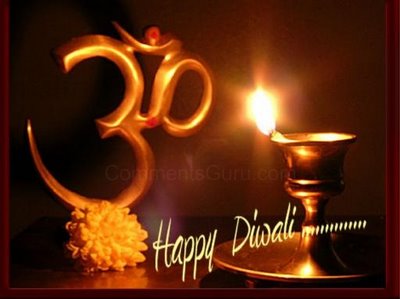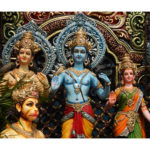
What is Diwali?
Enthusiastically celebrated by people of all nationalities, races, religions and ages, Diwali, the Festival of Lights, creates a magical world of joy and festivity. It celebrates the triumphant victory of good over evil – and the glory of light over darkness, a beam of hope over despair. The word Diwali or Deepavali (in its full form) means a row of lamps. Diwali marks a new beginning, a renewal of commitment to family values, and represents all the good virtues sought, such as love, reflection, forgiveness and knowledge.
Hindu Festival of Diwali
Hindus observe Diwali over a period of five days.
– The first day of Diwali is called Dhanvantari Trayodasi.
– The second day is called Narak Chaturdasi.
– The third day is actually Diwali. According to the Ramayana the people of Ayodhya illuminated the kingdom with earthen lamps (diyas) to celebrate the return of their King, Lord Rama.
– The fourth day is the Govardhana Puja
(Hindu New Year) and is a time for reconciliation and forgiveness.
– The fifth day of Diwali is called Bhaiya Duj and is dedicated to the relationship between brother and sister.
Amazon #ads

The Jain Festival of Diwali
Diwali has a special significance for Jains as it is the beginning of a new year. On this day Lord Mahavira attained nirvana over two and a half thousand years ago. Thus they use this occasion to celebrate and to enunciate his message of love and non-violence to all living beings. His central message of Ahimsa!
The Sikh Festival of Diwali
Sikhs celebrate Diwali to express their joy at the return of the sixth Guru, Guru Har Gobind Ji to Amritsar in 1620.




